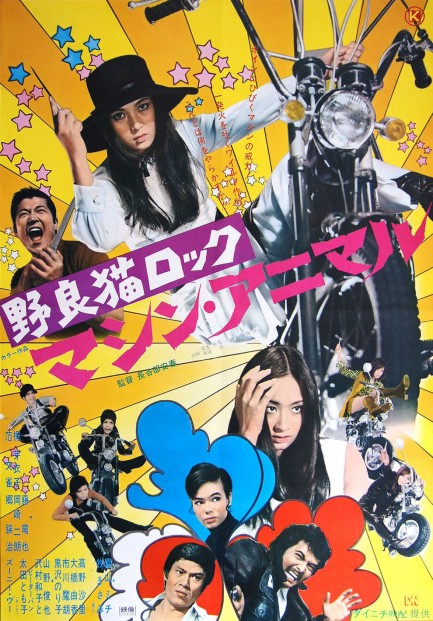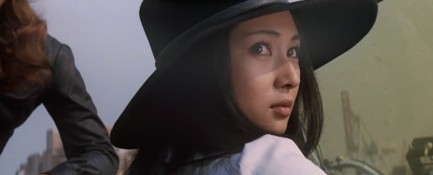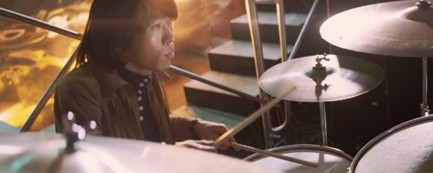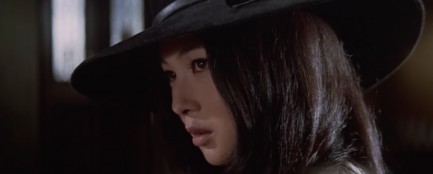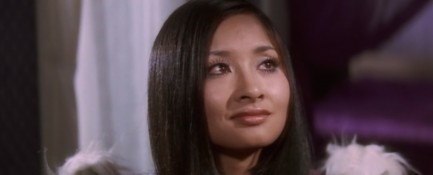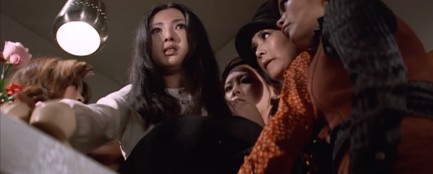| Intl. Notebook | Aug 1 2023 |

The fun pinky violence actioner Nora-neko rokku: Wairudo janbo, aka Stray Cat Rock: Wild Jumbo, premiered today in 1970, so we have for you all the promo images were able to find. You see Meiko Kaji, Tatsuya Fuji, Bunjaku Han, Sôichirô Maeno, and others. We wrote in more detail about the movie at this link.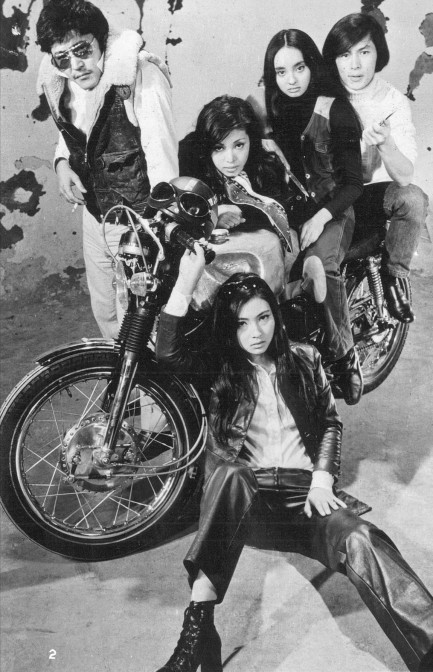

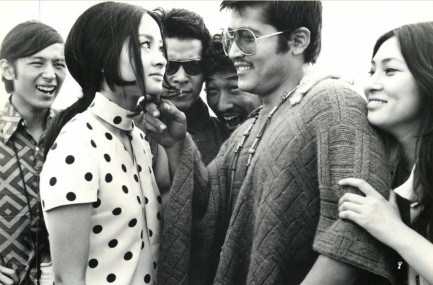
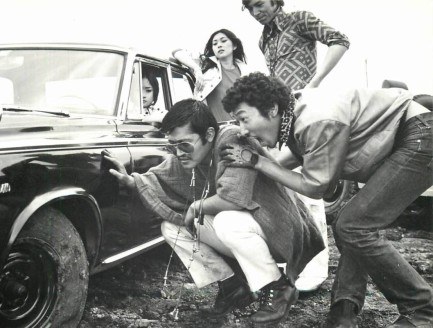
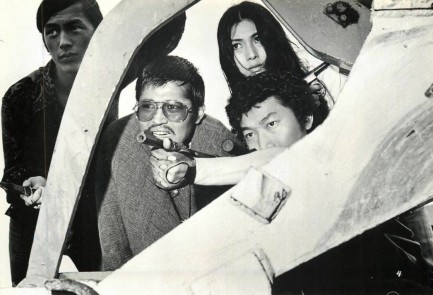
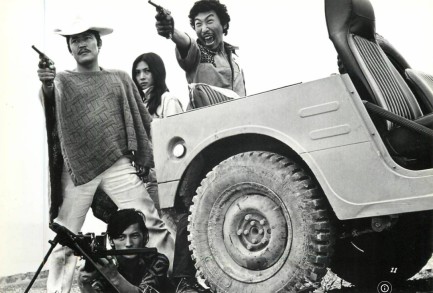
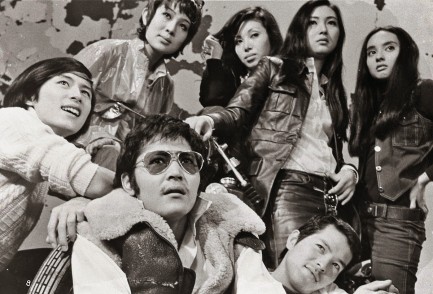
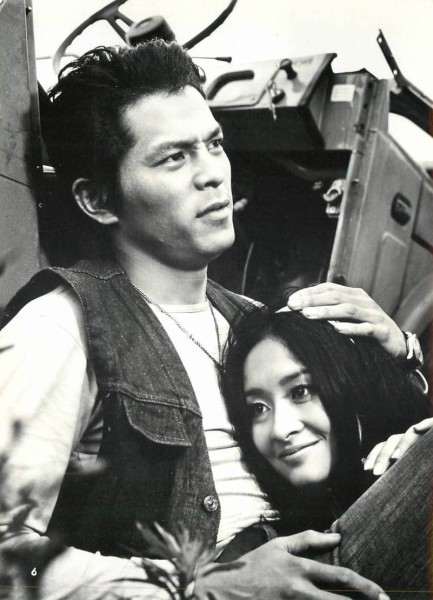
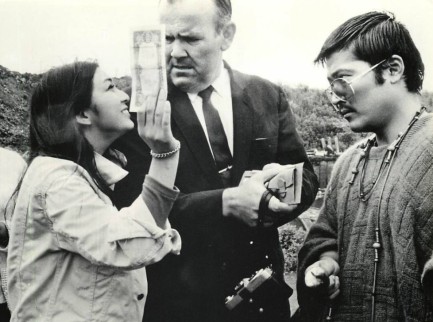
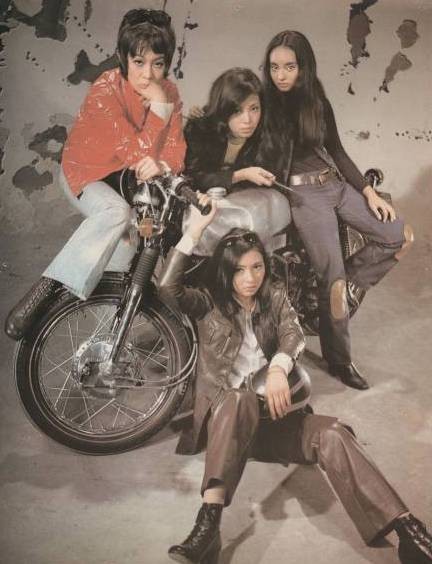
| Femmes Fatales | Jan 13 2023 |

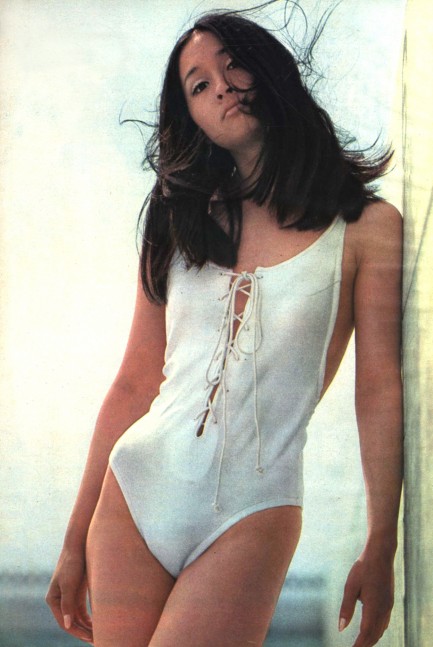
Above is a nice image of Japanese actress Bunjaku Han, who appeared in landmark pinky violence films like Stray Cat Rock: Machine Animal, Stray Cat Rock: Wild Jumbo, and many others, as well as in more obscure fare such as Kawaii akujo, aka Lovely Wicked Woman. Here you see her in a 1969 shot made by Shigeru Izumi and first published in Heibon Punch.
| Vintage Pulp | Aug 1 2020 |

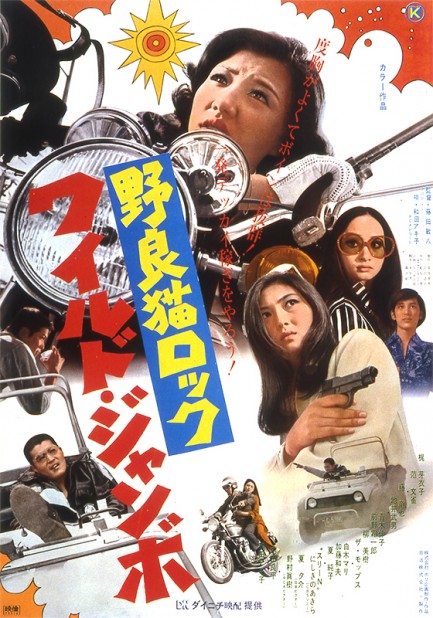
| Vintage Pulp | Jan 3 2020 |

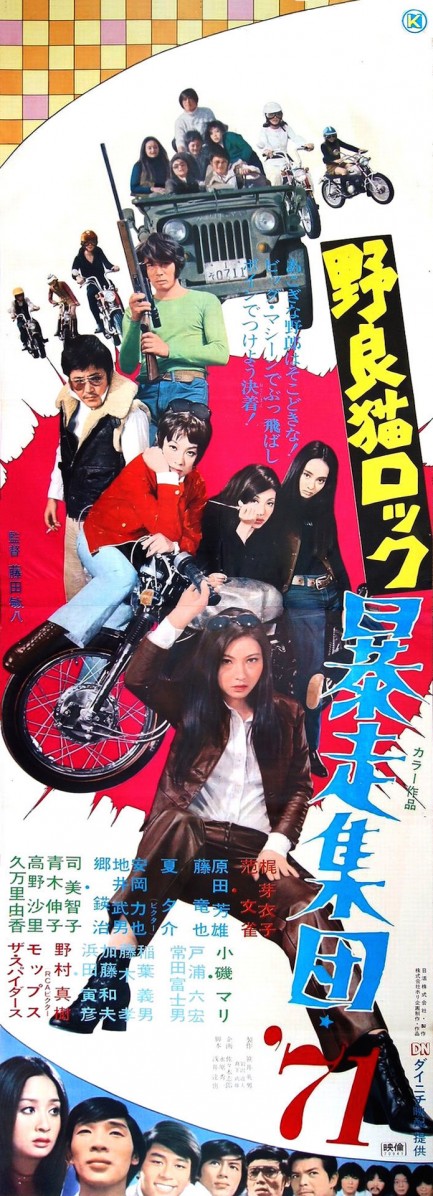
| Vintage Pulp | Aug 1 2018 |

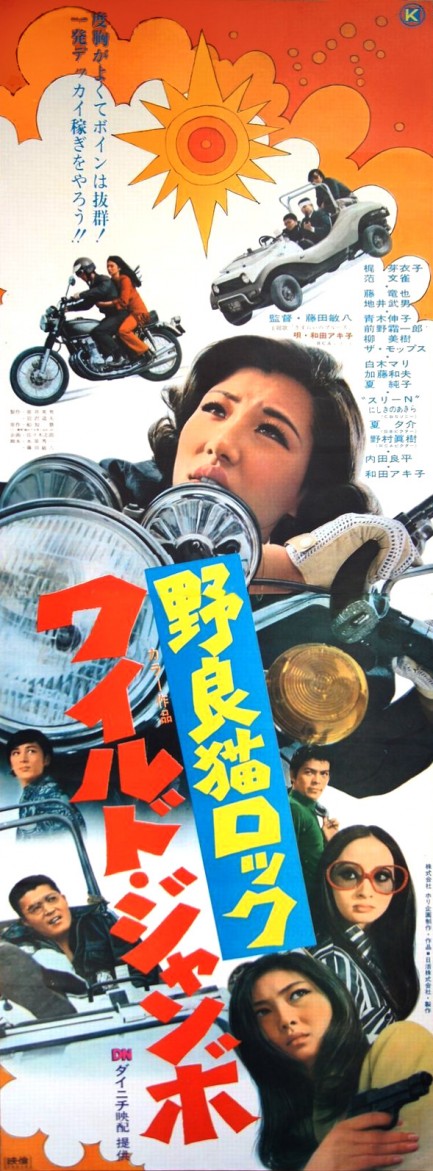
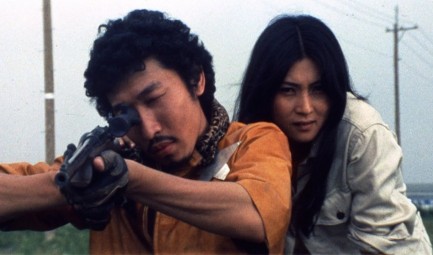
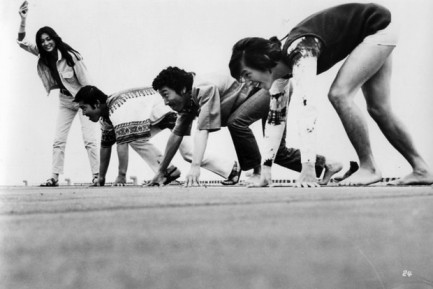
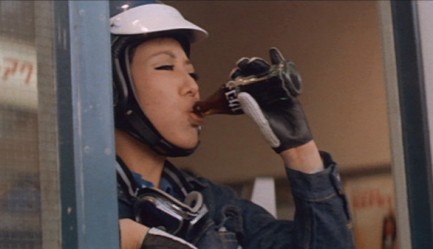
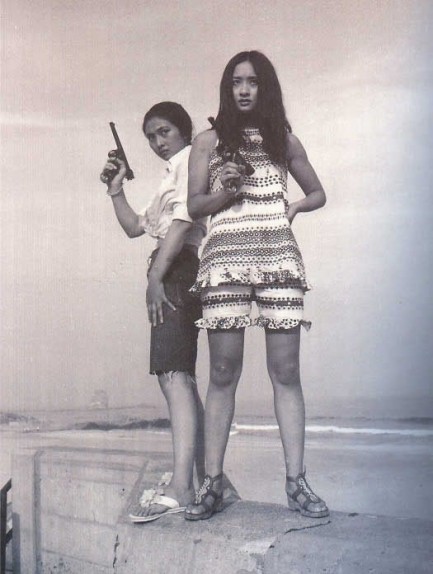
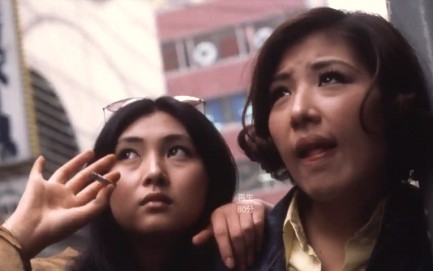
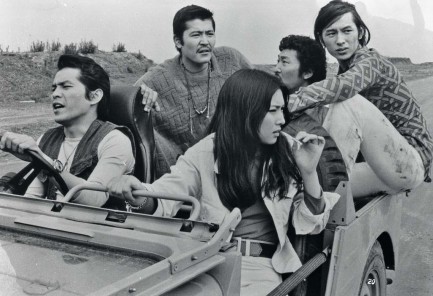
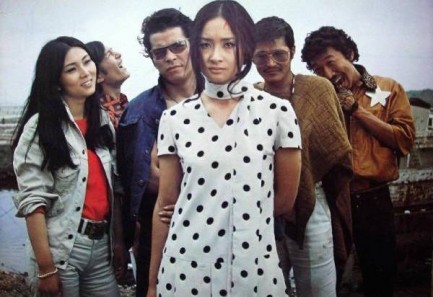
| Vintage Pulp | May 2 2016 |

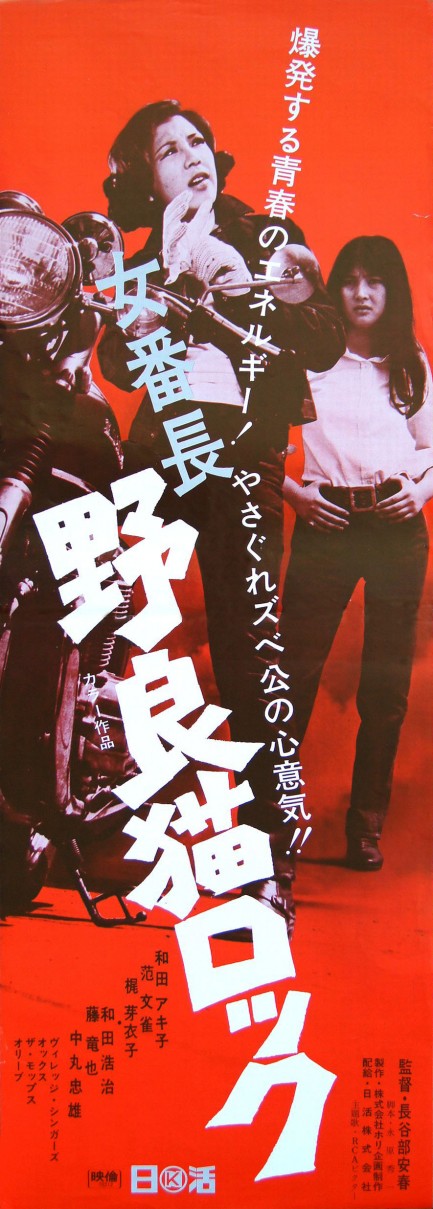
This beautiful and very rare promo poster was made to promote a Japanese film called Onna banchō nora-neko rokku. In the English speaking world its various distributors couldn't seem to settle for long on a title, and it was called alternately Alleycat Rock: Female Boss, Stray Cat Rock: Delinquent Girl Boss, Female Juvenile Delinquent Leader: Alleycat Rock, and Wildcat Rock. It’s the first of five Alleycat Rock or Stray Cat Rock films, and revolves around Meiko Kaji’s girl gang’s unwitting influence over a fixed boxing match. The boxer is supposed to take a dive for a yakuza cartel but instead wins the fight in order to save face with Kaji and her hotties (two of the gang members are played by Bunjaku Han and charismatic pop star Akiko Wada, so we can understand the boxer’s change of heart). But unbeknownst to Kaji, it was her boyfriend who had convinced the yakuza the bout could be fixed in the first place, and now he’s in deep trouble. Wonderfully lensed like so many of these pinku movies, with the requisite grey Tokyo cityscapes, neon splashed nightclub locales, and shots featuring eight or ten characters meticulously packed into the same frame, Onna banchō nora-neko rokku is a nice all around effort. It premiered in Japan today in 1970.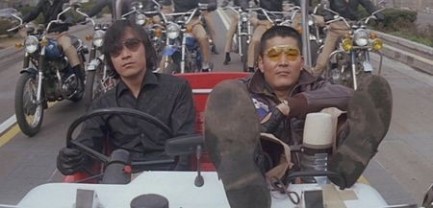
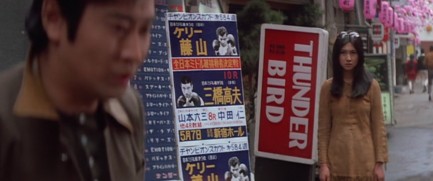
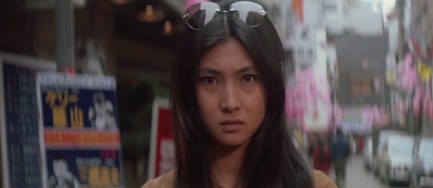
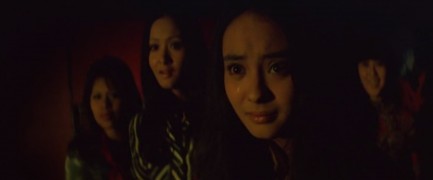
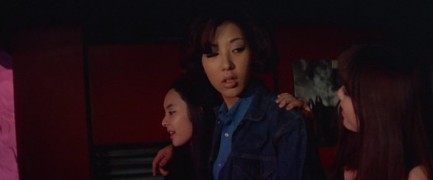
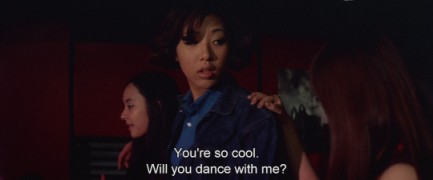
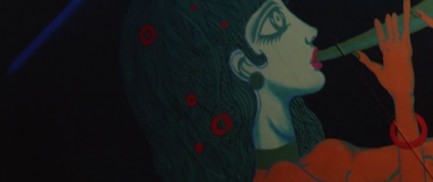
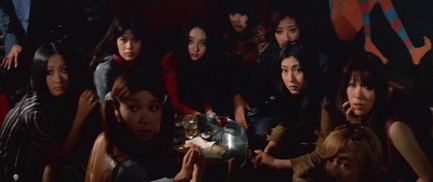
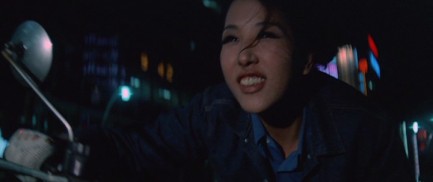
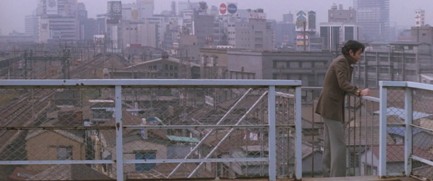
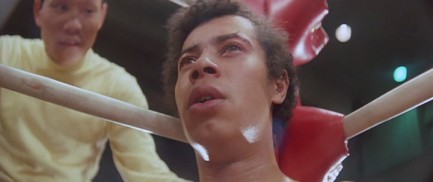
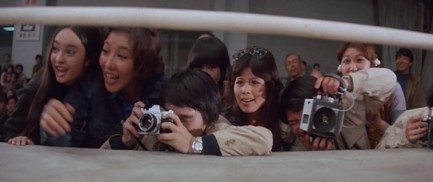
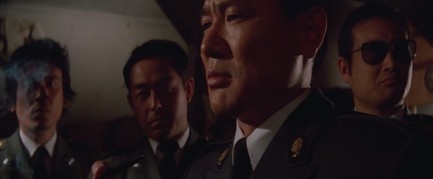
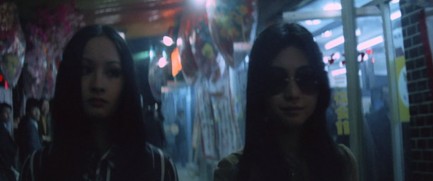
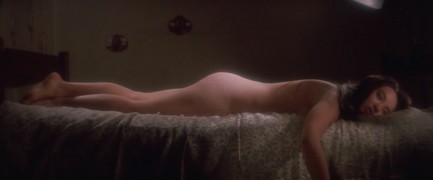
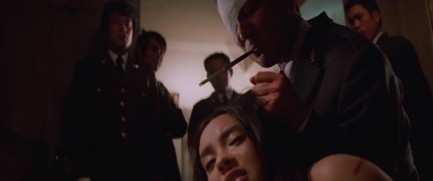
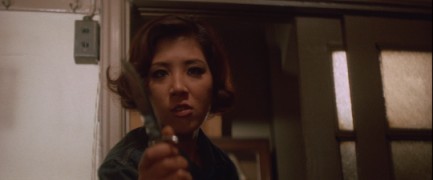
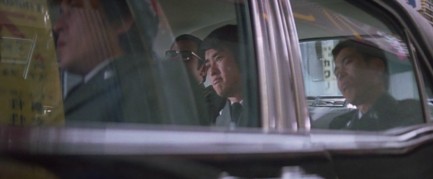
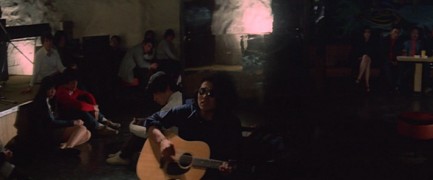
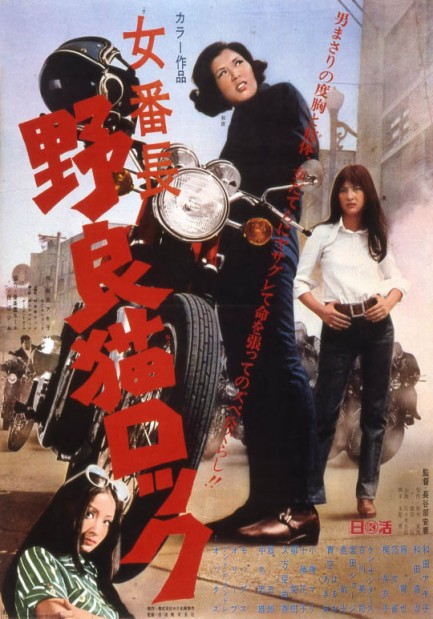
| Vintage Pulp | Apr 20 2016 |

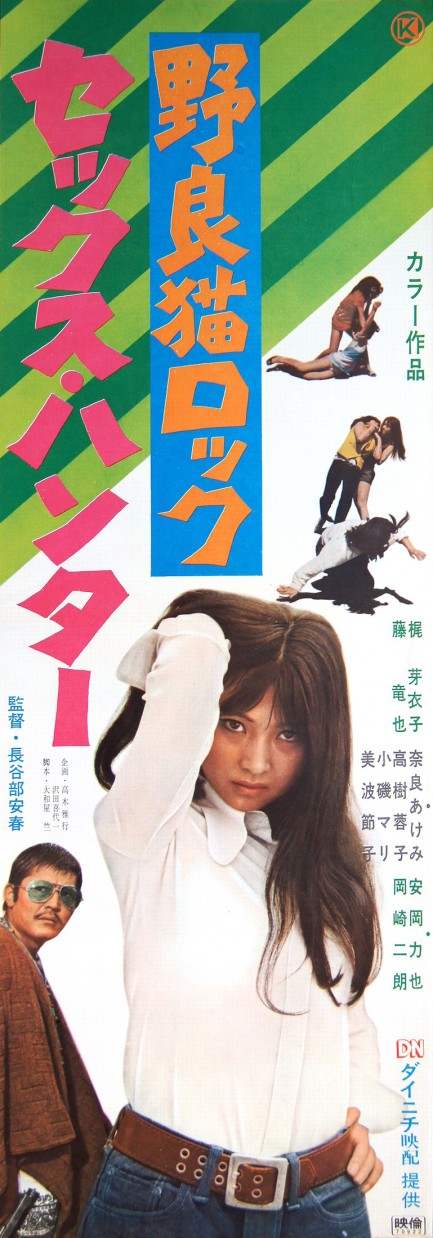
Back in 2009 we shared two posters for Meiko Kaji's action-packed pinku Nora-nekko rokku: Sekkusu hanta, aka Stray Cat Rock: Sex Hunter. The above tatekan sized poster is an alternate promo for that film, which premiered today in 1971. It's similar to the version we showed you before but not identical—stripes go the other direction, woman pulling her undies down is missing, inset image of girls torturing a bad boy has been removed. Both posters are tops. Take a close look at the other one here (scroll down a bit).
| Vintage Pulp | Jan 3 2016 |

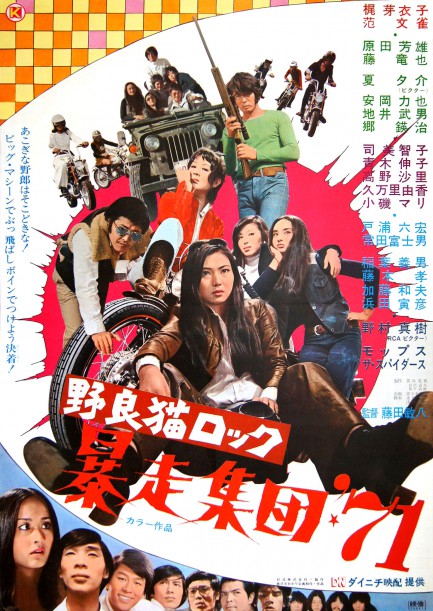
Promo poster for Nora-neko rokku: Bôsô shudan ’71, aka Stray Cat Rock: Crazy Rider ’71, aka Stray Cat Rock: Beat ’71. We talked about this installment of the Stray Cat Rock franchise and shared the super rare panel length promo last year. The above version is the one that's more commonly seen, but this is a new scan—well, really a digital photo, because who has a scanner that big? Anyway, it's an improvement over what was already out there.
| Vintage Pulp | Jan 3 2015 |

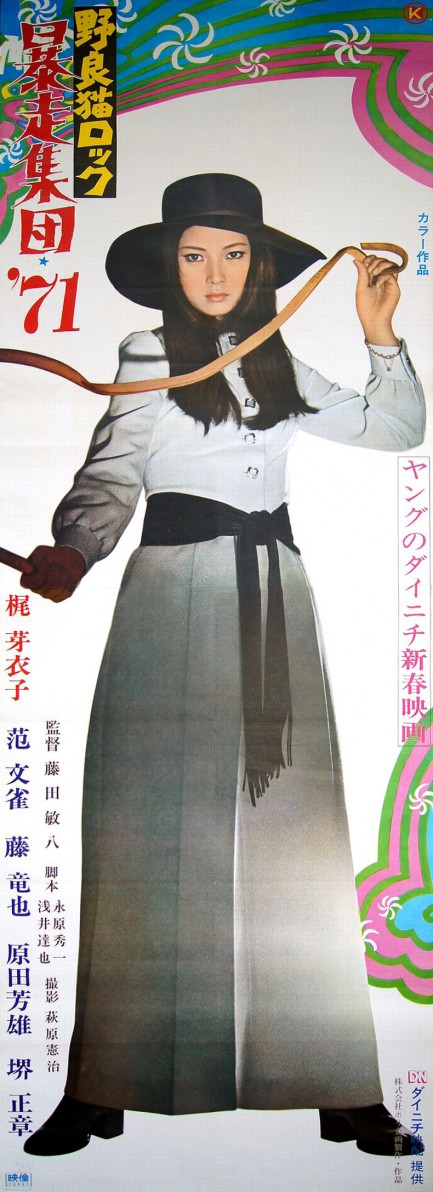
Even Nikkatsu serials eventually end, and this entry in the Stray Cat Rock series, entitled Nora-neko rokku: Bôsô shudan ’71, aka Stray Cat Rock: Crazy Rider ’71, aka Stray Cat Rock: Beat ’71, was the final outing for Meiko Kaji in the franchise. That’s her, of course, looking exceptionally badass on an exceedingly rare promo poster, and below we have even rarer distributor sheets. Plotwise, Kaji has a boyfriend named Ryumei who has spurned the mainstream lifestyle for hippie freedom. When bikers attack Ryumei and Kaji the altercation leads to Ryumei killing one of the thugs. Unluckily for Kaji, he’s whisked away, leaving her to take the murder rap, in turn leading to her being tossed in jail. Turns out Ryumei’s father wants him to give up hippiedom and join the family business, and sent the bikers to kidnap him and bring him home.
Kaji escapes from jail a while later, seeks out Ryumei, finds him transformed into a cold-hearted suit, and is imprisoned again, this time by the father’s evil thugs. The main problem with this movie for Kaji fans is she doesn’t get much screen time. Instead much of the tale is told from the other end, as Kaji’s friends, led by Yoshio Harada, plot to free her. This isn’t fatal to the movie, though. If you can embrace the other protagonists you’ll find plenty to enjoy. The sentiment of hippies-versus-power may seem quaint, and indeed the film handles certain elements of their lifestyle comedically, but all these years later, with Japan’s rich getting richer while its poverty rate is among the highest for developed nations, is anyone still laughing? Nora-neko rokku: Bôsô shudan ’71 premiered in Japan today in 1971, and you can see more posters for the series here and here. 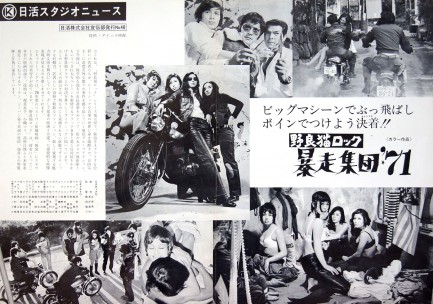
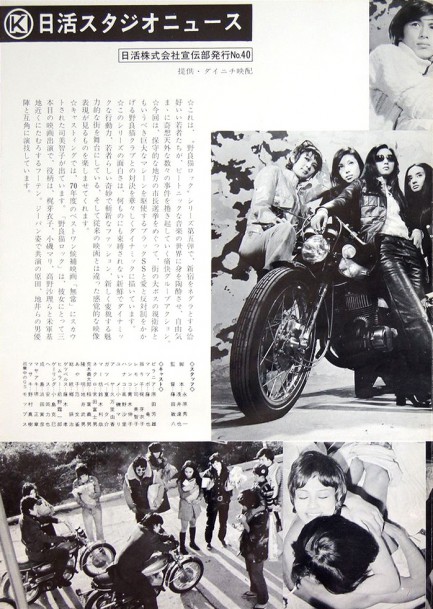
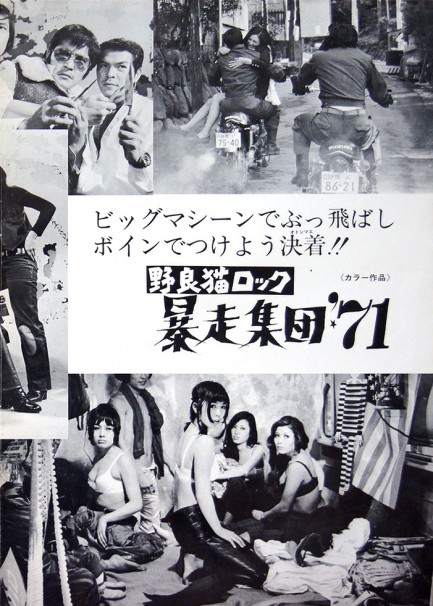
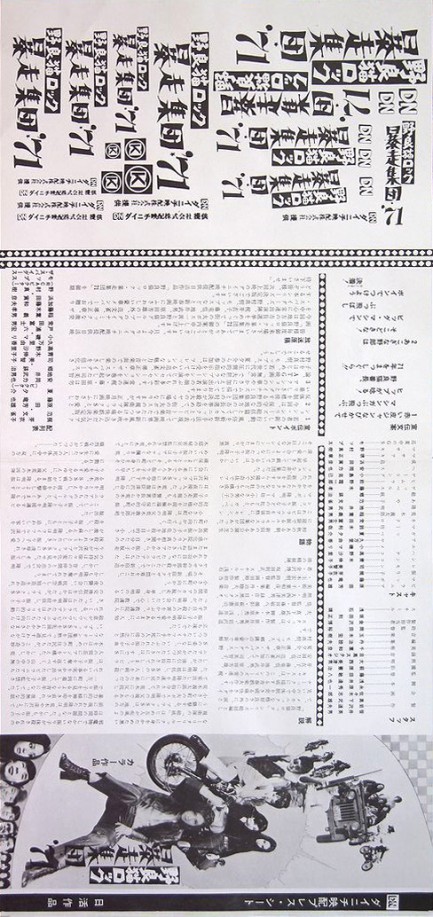
| Vintage Pulp | Nov 22 2014 |

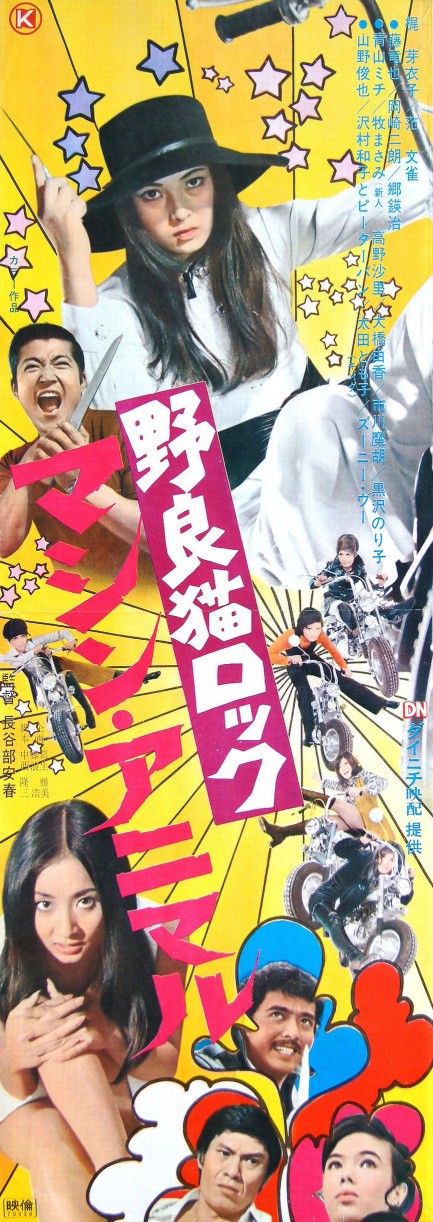
Since we featured Reiko Ike yesterday it seems only right to have Meiko Kaji today. Which of them is the real queen of 70s Japanese action cinema? It’s up for debate. Maybe it’s even someone else entirely. Anyway, you see above and below two posters for Nora-neko rokku: Mashin animaru, known in English as Stray Cat Rock: Machine Animal. It was the fourth of five Stray Cat Rock films, and Kaji starred in all, though as different characters in each.
The series is about juvenile delinquency and takes place against a backdrop of industrial cityscapes and inside the sorts of groovy nightclubs you might associate with Austin Powers. The plot involves Kaji and her cohorts planning to sell stolen LSD in order to help a soldier escape the Vietnam War, but getting entangled with rival gangsters who want to horn in on the deal. It’s very much worth a viewing, and stacks up well against the previous entries. Wild stray cat—you’re a real gone girl. Nora-neko okku: Mashin animaru premiered in Japan today in 1970.